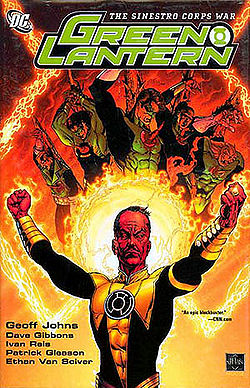I really liked this comment John Hennings left last week about Brad Paisley’s “Accidental Racist”, so I thought I’d highlight it here.
Noah, I agree in general with your points about this song, and I enjoyed this essay, but I think you got the title wrong. You correctly assert that country music got more racist, but you don’t explain how. At the risk of stating the obvious, I think it was an unfortunate side effect of the polarization during the Civil Rights Movement. But I don’t think that’s the whole story of what happened to country music, and I don’t think racism, per se, is the problem with the song.
You and my fellow commentators are right to point to country’s current vacuity as one source of the trouble. Country music is far from uniquely Southern and Western, but it is identifiably so. Like other forms of music from the poor, rural places, it is borne of hard times. Despite the current economic struggles, times aren’t as hard for most of us hillbillies as they were in Hank Snow’s day, so country music now has less to say. We’re also not as isolated, so country music is less distinctive.
The culture that made Jimmie Rodgers and Louis Armstrong the men they were is severely endangered. The Starbucks reference in “Accidental Racist” is a good indicator. Prosperity and progress have made the lives in the flyover states (regardless of color) more similar to those on Long Island or in Orange County than to those of Roy Acuff or DeFord Bailey. Many rural kids listen to pop, hip-hop and rock growing up. They don’t start voluntarily listening to country until they get jobs and families. Country music now talks about the responsible grown-up lifestyle more than other music, so we mature into people for whom country music speaks.
Had “Accidental Racist” been the integrated, honest modern equivalent of “Blue Yodel #9?, Paisley and LL Cool J would have commiserated over the petty politics of their homeowners’ association, or the difficulty of getting your children into the best schools. Those aren’t compelling issues, but they’re genuine.
In the South, we also listen to country because it is identity music. So are related forms like southern rock, gospel, blues, dirty south hip-hop, and gangstagrass. We associate country with our traditional culture — the slower pace of Southern life; the connection to the land; and the greater emphasis on family, community, hospitality, and faith. The attraction is even more powerful if none of those things describe our lives anymore. The irony of this nostalgia is that when we were children, the homogenization had already begun.
I grew up in classically (not to say stereotypically) rural Southern surroundings and circumstances. I love “The Ballad of Curtis Loew” maybe more than any other Lynyrd Skynyrd song. For me, that is saying a lot. The Ballad is about a homeless, black, blues guitarist and the white child who would scrounge money and defy his parents to hear him play. It could easily have happened in the racially mixed town I grew up in. In my mind’s eye, it did. It is an honest song that makes a statement about human equality. That statement may not be quite as organic or “accidental” as the statement in Blue Yodel #9, but it is nearly so, and it is neither preachy nor flat-footed. “Accidental Racist,” in contrast, seems more like the narrative of a frustrated suburbanite, awkwardly stumbling through race issues for which his primary preparatory life experiences were those very special episodes of “Diff’rent Strokes” and “The Facts of Life.”
On second thought, maybe it is an honest song, after all.
I’ll add one more word of defense for Brad Paisley. When he and I were kids growing up, white and black Southerners considered the Confederate battle flag a symbol of the South and Southern culture. More defensively, it was a badge of our us-against-them attitude toward those who believed themselves our superiors. White supremacist groups actively re-branded the flag and made it a symbol of slavery and racism. Where I lived, that took effect a little before I graduated high school, much to our vocal lament. I don’t know if that was contemporaneous with the rest of our society. This was pre-internet; we were frequently behind y’all when it came to zeitgeist awareness.
Interestingly, with the notable exception of England, Southerners in many European countries also lead simpler, more agrarian, lifestyles than their more cosmopolitan countrymen. So when football teams from southern Italy or southern Germany play their northern rivals, you can expect some fan to fly the Confederate battle flag.


